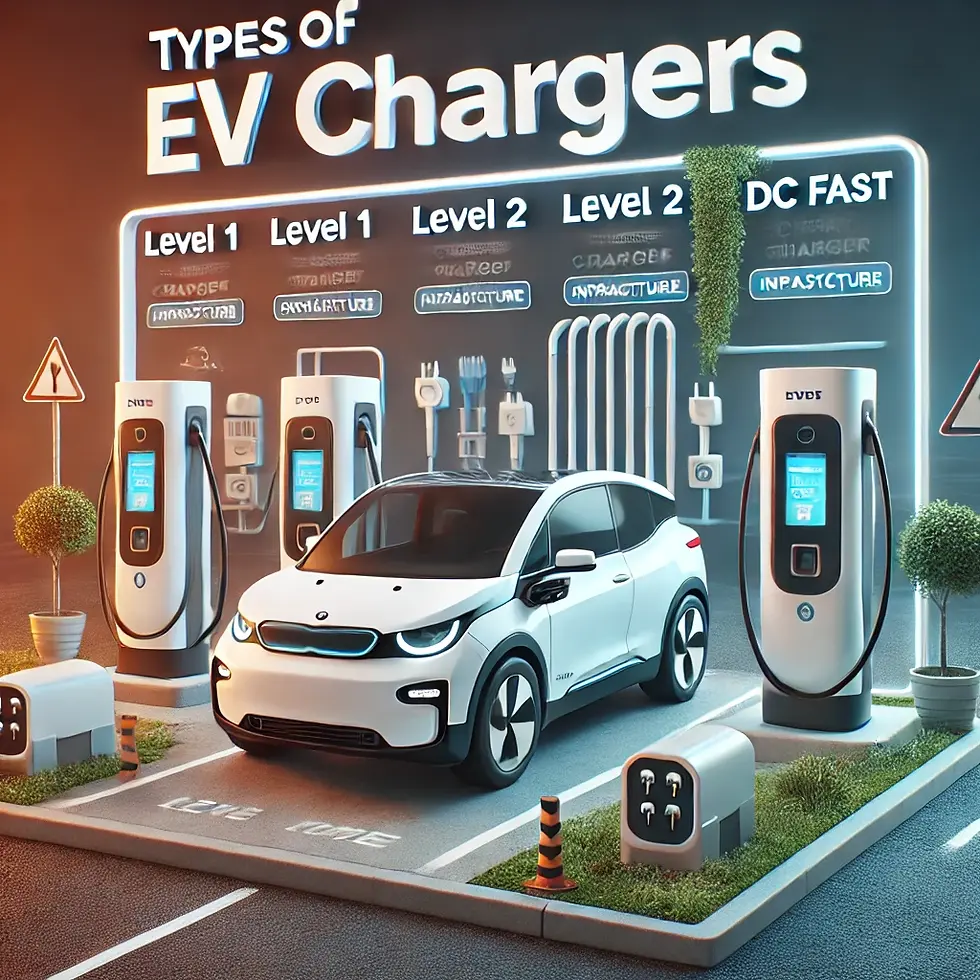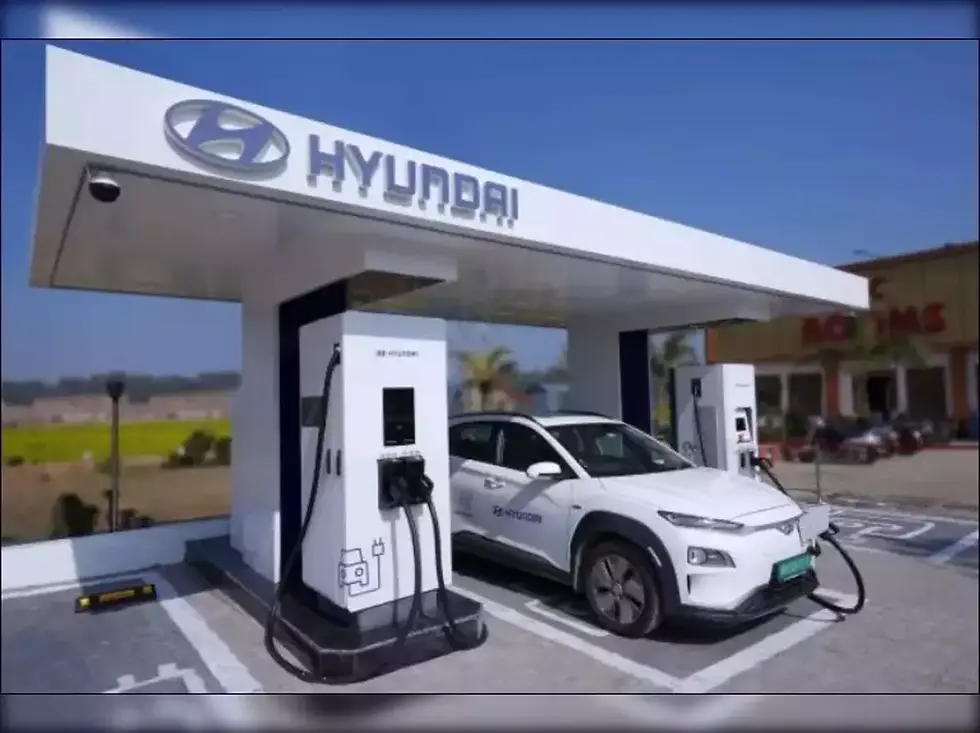Types of EV Chargers and Their Importance in Infrastructure
- elearning@ensemble
- Sep 18, 2024
- 2 min read

As the adoption of electric vehicles (EVs) increases, developing an efficient and accessible EV charging infrastructure is essential to support this transition. There are different types of EV chargers, each designed for specific environments and use cases. Understanding these types helps ensure the right charging solution is deployed for both residential and commercial purposes. In this blog, we’ll explore the key types of EV chargers and their role in supporting sustainable transportation.
Types of EV Chargers
1. AC Chargers (Level 1 and Level 2)
Level 1 Chargers:

These are basic chargers that operate from a standard 120V outlet. They are ideal for residential settings where vehicles can be charged overnight.
Charging Speed: Typically takes 8-12 hours for a full charge.
Best For: Personal use, small EVs, and overnight charging.
Level 2 Chargers:

These chargers use a 240V outlet and offer faster charging than Level 1. They are common in homes, workplaces, and public spaces such as shopping malls.
Charging Speed: Takes 4-6 hours for a full charge.
Best For: Homes, offices, and public locations where vehicles are parked for longer periods.
2. DC Fast Chargers

These are high-speed chargers that convert AC power to DC before delivering it to the vehicle’s battery. DC fast chargers are typically found in public charging stations and along highways, providing rapid charging solutions for long-distance travelers.
Charging Speed: Can charge up to 80% of a vehicle’s battery in 30-45 minutes.
Best For: High-traffic public locations, commercial parking lots, and long-distance travel routes.
Common Standards:
CHAdeMO: Often used by Asian manufacturers like Nissan.
Combined Charging System (CCS): Popular for many EVs in India.
3. Ultra-Fast Chargers

Ultra-fast chargers offer the highest charging speeds, delivering up to 350 kW. They are mainly used in commercial settings and for electric fleets that require rapid charging to maximize uptime.
Charging Speed: Full charge in as little as 15-20 minutes.
Best For: Commercial fleets, logistics hubs, and high-demand public locations.
Why Choosing the Right Charger Matters
Selecting the right charger is crucial for optimizing both cost and efficiency:
Residential vs. Commercial Use: Homes generally benefit from Level 1 or 2 chargers, while public locations need faster options like DC or ultra-fast chargers.
Cost Considerations: Faster chargers, such as DC fast chargers, are more expensive to install and maintain, making them suitable only for high-traffic or high-demand areas.
Compatibility: Ensuring that charging stations support popular standards like CCS and CHAdeMO is vital for catering to diverse EV models.
Wrapping Up
The growing demand for EVs has underscored the need for diverse charging solutions, each tailored to specific environments. From slow AC chargers for home use to ultra-fast chargers for commercial fleets, the right infrastructure is essential to supporting the electric mobility revolution.




Comments